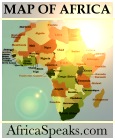Zimbabwe: Outrage Intensifies Over Brown's Threat
Posted: Saturday, September 22, 2007By Bulawayo Bureau
September 22, 2007
The Herald
'Arm-twisting not way to solve Zim's challenges' CONDEMNATION of British Prime Minister Gordon Brown over his threat to boycott the Euro-Africa Summit if President Mugabe attends intensified yesterday.
Amid growing international consensus that the conference must go ahead even without Britain, the Pan-African Parliament said Mr Brown should desist from behaving like an overlord.
In remarks that received worldwide coverage yesterday, Dr Gertrude Mongella, the Tanzanian president of the Pan-African Parliament, said "arm-twisting" was not the way to solve Zimbabwe's challenges.
Her comments reflect the determination of the African Union to go ahead as planned and invite President Mugabe to the Euro-Africa summit in Lisbon, Portugal, in December.
Dr Mongella, attending a conference with Socialist Members of the European Parliament in Brussels, has made it clear that African solidarity might undermine Mr Brown's "him-or-me" challenge to the summit.
"We do know there are some problems (in Zimbabwe), but if somebody wants to arm-twist Zimbabwe, that's not the best way to solve the problems," she said.
"I think this is again another way of manipulating Africa. Zimbabwe is a nation which got independence. I think in the developed countries there are so many countries doing things which not all of us subscribe to – we have seen the Iraq war, not everyone accepts what is being done in Iraq."
Dr Mongella urged all African and European leaders to go to the summit – including Mr Brown – to join the talks to "meet, develop a very committed dialogue to solve problems, rather than threatening each other by going or not going".
She said dialogue must be pursued to resolve any disputes.
"I think if we want to move in the right direction, with the African way of doing things, you discuss things under a tree till you agree. So if somebody does not come under a tree to discuss, that is not the African way of doing things."
Mr Brown was also condemned by Zimbabwe's Ambassador to the United Nations, Mr Boniface Chidyausiku, who said the prime minister had no right to dictate who should be at the summit or not.
Mr Chidyausiku said President Mugabe had a sovereign right, like all other African heads of state, to attend the Lisbon summit, adding that bigger issues affecting Africa should be prioritised.
Mr Chidyausiku's remarks follow almost similar sentiments by Portuguese EU legislator Mr Paolo Casaca and the Southern African Development Community chairman, President Levy Mwanawasa of Zambia, on Thursday.
President Mwanawasa even countered Mr Brown with his own threat, saying if President Mugabe is barred from attending the summit, Zambia and probably other African leaders would not go to Lisbon.
Mr Louis Michel, the EU Commissioner for Aid and Development, signalled Mr Brown's growing isolation, saying that one person cannot scuttle a key summit between two continents.
"We think that a single individual case cannot take as hostage the relations between two continents," said Mr Michel.
He added that the European Commission would want the summit to go ahead regardless of Mr Brown's threat.
Writing in a British newspaper, The Independent, on Thursday, Mr Brown provoked sharp international criticism when he said he would boycott the Portugal summit – the first since 2000 – if President Mugabe attends.
Mr Brown, like his predecessor Mr Tony Blair, claimed that the Government had presided over the prevailing economic challenges, ignoring the impact of illegal EU and American sanctions.
He said the EU's five-year visa ban on President Mugabe must be enforced to ensure that he does not travel to Portugal.
But Mr Michel said the ban does not apply to international meetings.
"I expect it is possible to have a compromise, but if there is no compromise, what can you do? The only option I cannot accept is suppressing the summit," he said.
Mr Brown, who assumed office in June, is said to base his foreign policy on a series of anti-Zimbabwe reports aired by several British media outlets, including the BBC and ITV News.Printer friendly version
Send page by E-Mail

Previous Page | Zimbabwe Watch | Historical Views | Home
NOTICE: All articles are the copyright property of the writers. In accordance with Title 17 U.S.C., section 107, some material on this site is provided without permission from the copyright owner, only for purposes of criticism, comment, scholarship and research under the "fair use" provisions of federal copyright laws. Visit: http://www.law.cornell.edu/uscode/17/107.shtml for more details. If you wish to use copyrighted material from this site for purposes of your own that go beyond 'fair use', you must obtain permission from the copyright owner.










